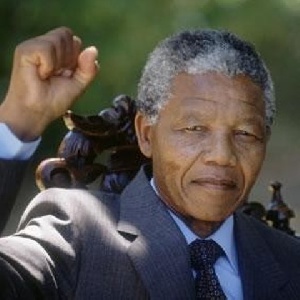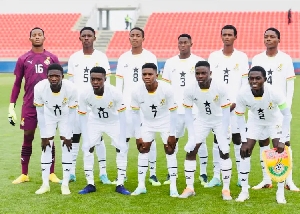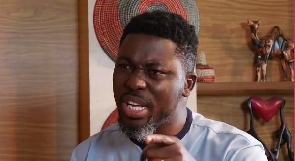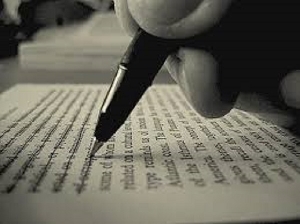- Home - News
- TWI News | TV
- Polls
- Year In Review
- News Archive
- Crime & Punishment
- Politics
- Regional
- Editorial
- Health
- Ghanaians Abroad
- Tabloid
- Africa
- Religion
- Election 2020
- Coronavirus
- News Videos | TV
- Photo Archives
- News Headlines
- Press Release
General News of Saturday, 7 December 2013
Source: Cameron Duodu
The unknown Nelson Mandela
By Cameron Duodu
I first met Nelson Mandela at Jan Smuts Airport, Johannesburg.
It was in September 1990, and I was in Johannesburg as the guest of Jim Bailey, the publisher of the Pan-African Magazine, Drum. I had been the Ghana editor of this paper in1961-65 and Bailey wanted me to edit a compendium of the articles published during the period. Nelson Mandela had been released from prison only seven months before I arrived and South Africa was still teeming with journalists, each to secure a from a pernicious apartheid racist state, into a demon exclusive interview with the world's most famous political prisoner.
I put in my own application, without expecting to receive any response. However, I kept phoning the ANC press office, and one Saturday morning, I struck pay dirt. When I mentioned my name, the guy at the other end of the line said : “I know of you! When I was in exile in Lusaka (Zambia) I used to listen to your dispatches from Accra to the BBC.” He then began to consult his colleagues in a whispered conversation.
Finally, he came back on the line: “Can you get to Jan Smuts Airport right away? Mr Mandela is about to travel to Asia and we haven't told the other media.”
I thanked him and drove straight to Jan Smuts. I went to the VIP lounge – surely, Mandela would have to leave the country that way? But after hanging around there half an hour, I saw no sign of him. So I made my way to the general departure lounge and scanned the faces of people in the crowd. I recognised one: Thomas Nkobi, treasurer-general of the ANC.
I was talking to Nkobi when suddenly, Mandela came walking towards us. Two of his grand-daughters were with him. They were the only“bodyguards” he thought he needed! His bravery was extraordinary, and perhaps even foolhardy, considering the nature of the racist right-wing lunatic fringe in the country. Anyway, Mr Nkobi introduced me to him as a journalist friend from Ghana.
As soon as Mr Mandela heard the name Ghana, he said: “Ah, Ghana! I was there in 1962. I went there to see President Kwame Nkrumah. But I never got to see him. I waited for several days, but the Foreign Minister, Ako Adjei, said I would have to wait, as Nkrumah was about to address a meeting of other freedom fighters. I would have to talk to him then. Now, I had been warned that A K Barden director of Nkrumah's Bureau of African Affairs, preferred the Pan-Africanist Congress to the ANC. So I didn't think it would be useful to hang around in Accra and I left for Liberia. There, I was received promptly by President William Tubman!”
The irony of the situation was not lost on me. Nkrumah was the loudest champion of African liberation, whereas Tubman was regarded as a 'sell-out', because of Liberia's close relationship with the United States. Yet Nkrumah had denied himself the opportunity of meeting Mandela on Mandela's dangerous secret trip across Africa, which had enhanced his reputation as “The Black Pimpernel”, who could give the slip to the ubiquitous Bureau of State Security (“Boss”).
The second occasion on which I met Mandela was when I visited his home in Houghton, in the company of the Nigerian politician, the late Chief Moshood Abiola. We were waiting in his living room downstairs, which was packed with ANC cadres, when he suddenly made his entry. He took one look at the room and realising there was no empty chair for him, he darted towards the dining table and grabbed one. He was making his way into our midst with I when I jumped up like a bitten rabbit and took the chair off him. It was quite heavy. How could a 74-year-old man even conceive of picking up such a chair? Prison had made him extremely self-reliant – I noted in my head.
As in our first meeting, Mr Mandela astonished me with the sharpness of his memory. After 27 years in jail, he remembered names like “Alhaji Ahmadu Bello, Sardauna of Sokoto [Nigeria]” and “Alhaji Sir Abubakar Tafawa Balewa, prime minister of the federation of Nigeria”with ease. He told us the Sardauna of Sokoto, despite being largely written off as a “conservative” Anglophile, had given the ANC“ten thousand pounds sterling” – a considerable sum in 1962.
The third occasion I met Mandela was also an unforgettable moment. Mandela was now installed as President of South Africa, in the Union Buildings in Pretoria. He had invited me and a Nigerian friend to have lunch with him and his Foreign Minister, the late Alfred Nzo, to brief them about the arrest and detention of his friend, chief Moshood Abiola, by the Nigerian military dictator, General Sani Abacha.
As we lunched on fried chicken, I came to realise that Alfred Nzo, the Foreign Minister who was supposed to advise Mandela on difficult foreign policy issues, was not the slightest bit interested in the conversation. He in fact did not utter a single word. If Mandela had to cope with such people in his Cabinet, how would he succeed in solving South Africa's problems?
Following our discussion, Mandela sent emissaries to Abacha to plead for Abiola's release from prison. Abacha made promises, but did nothing. Finally, on his way back home from an African heads of state meeting in Tunis, Mandela himself made a detour to Abuja, the Nigerian capital, to see Abacha. But he realised he had failed with Abacha when the latter tried to turn the meeting to his own political advantage, by releasing a statement claiming that Mandela had visited him to “discuss the world economic situation!” Mandela's office thereupon issued a counter-statement, pointing out that Mandela had gone to Nigeria, “at the request of Chief Abiola's family”, to intercede with Abacha.
The finale in relations between Mandela and Abacha came in 1995, when the Nigerian writer, Ken Saro-Wiwa, and eight other Ogoni environmental activists were sentenced to death by a military tribunal set up by Abacha. Appeals went out to Mandela to talk to Abacha to reprieve them. Again, Mandela tried secret diplomacy. And again, Abacha rebuffed him –he hanged Saro-Wiwa and his fellow condemned men on 21 November 1995. The world press, unaware of what had been going on behind the scenes between Mandela and Abacha, excoriated Mandela for“failing” to use his influence to make Abacha show mercy.
I sensed that Mandela might want to tell his side of the story to someone he trusted and I faxed him a request for an interview, to which he agreed.
President Mandela gave me the most unforgettable interview in my professional career. Uniquely, in relations between serving heads of state in Africa, he bluntly described Abacha as a "brutal dictator" who had set up a "kangaroo court" to murder Ken Saro-Wiwa and his fellow Ogonis. He called on the Nigerian opposition to intensify their efforts to get rid of Abacha.
Mr Mandela added: "Abacha is sitting on a powder keg and I am going to explode it beneath him." (The Observer 26 November 1995).
In spite of the fire he had breathed against Abacha only moments earlier, Mr Mandela showed he had a great sense of humour when I asked to be photographed with him. He got up, shook my hand, and said: “Now, you are going to make me famous!”
Wicked, no?










